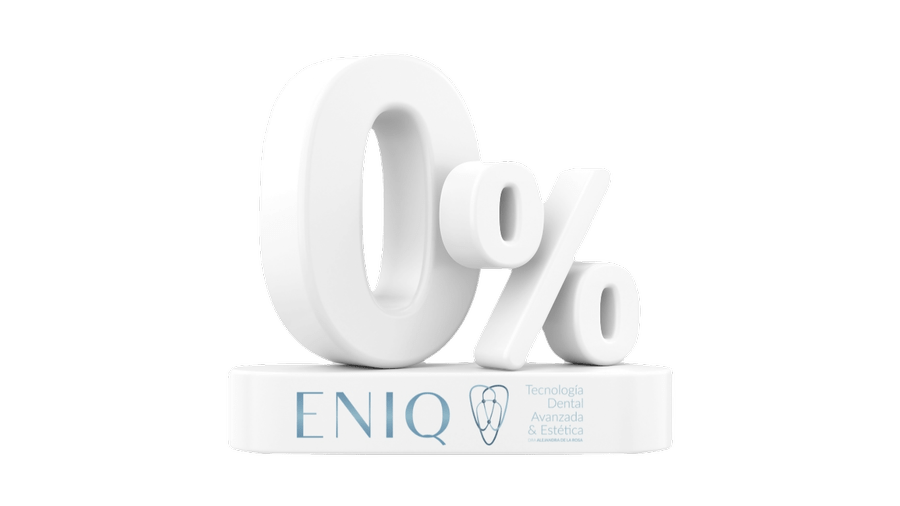

Porcelain Crowns
High-quality crowns designed to blend seamlessly with your natural teeth.
What is a Porcelain Dental Crown or Cap?
A porcelain dental crown, also known as a porcelain crown or ceramic crown, is a dental prosthesis used to restore a damaged, weak, or disfigured tooth. It consists of a custom-made porcelain cover that is placed over the existing tooth, completely covering it up to the gum line.
Porcelain is a very strong and aesthetically pleasing ceramic material that resembles the natural appearance of teeth. Porcelain dental crowns are frequently used in cosmetic dentistry due to their ability to provide a natural look and an enhanced smile.
The process of placing a porcelain dental crown generally involves several stages. Firstly, an examination and preparation of the tooth are carried out, which may involve the removal of some of the enamel to allow the crown to fit properly. Then, an impression of the prepared tooth is taken and sent to a dental laboratory, where the custom crown will be fabricated. During this time, a temporary crown may be placed to protect the prepared tooth.
Once the porcelain crown is ready, it is placed on the prepared tooth using special dental adhesives. The fit and occlusion are carefully checked to ensure the crown fits properly with the adjacent teeth and feels comfortable in the patient's mouth.
In summary, a porcelain dental crown is a custom-made cover that is placed over a damaged or disfigured tooth to restore its shape, function, and aesthetic appearance.
What is the Procedure for Making a Porcelain Crown or Cap?
WHAT IS THE PROCEDURE FOR MAKING A PORCELAIN CROWN OR CAP? The procedure for making a porcelain crown or dental cap generally involves several stages and typically requires two or more visits to the dentist.
Typical steps involved in the process:
- Evaluation and planning: In the first visit, the dentist will evaluate the affected tooth and determine if a porcelain crown is the right choice. X-rays will be taken, and a full mouth examination will be conducted. The dentist will discuss the procedure, treatment options, and answer any questions you may have.
- Tooth preparation: In the next visit, the tooth will be prepared for the crown. The dentist will numb the area with local anesthesia to ensure your comfort during the procedure. Then, a part of the dental enamel will be removed to make space for the crown. The dentist may also rebuild the tooth if necessary. Once the tooth has been shaped, a dental impression will be taken to create a custom crown.
- Placement of a temporary crown: While the permanent crown is being fabricated in a dental laboratory (which can take several weeks), a temporary crown may be placed to protect the prepared tooth. This temporary crown is made of plastic or acrylic and is meant to protect the tooth and prevent sensitivity.
- Fabrication of the porcelain crown: The dental impression taken at the previous visit will be sent to a dental laboratory, where the porcelain crown will be fabricated. Dental technicians will use the impression to create an accurate replica of your tooth and design the porcelain crown to fit perfectly.
- Placement of the permanent crown: Once the porcelain crown is ready, you will schedule an appointment for the final placement. The dentist will remove the temporary crown and place the permanent porcelain crown. Before placement, the fit and appearance of the crown will be checked. Once confirmed that it fits correctly, it will be permanently adhered to the tooth using strong dental cement.
- Adjustment and polishing: After placing the crown, the dentist will make additional adjustments if necessary to ensure that the occlusion (bite) is correct. The crown will also be polished so that it blends naturally with the adjacent teeth.
- Overall, the procedure for a porcelain dental crown takes a bit of time due to the manufacturing time of the custom crown in the dental laboratory. However, this approach ensures a high-quality crown that fits your mouth precisely and provides a natural appearance.
Duration
How Many Appointments Are Necessary for the Creation of a Dental Crown or Cap?
The creation of a dental crown or cap generally involves multiple dental appointments. Below, the typical appointments involved in the process are described:

Appointments Required in Other Clinics:
- Initial Evaluation: At this appointment, the dentist will examine the affected tooth and discuss your needs and treatment options. X-rays will be taken, and general dental health will be assessed.
- Tooth Preparation: At the next appointment, the tooth will be prepared for the crown. The area will be numbed with local anesthesia, and a portion of the dental enamel will be removed to make space for the crown. The tooth may also be rebuilt if necessary. In some cases, a temporary crown may be placed while the permanent crown is being fabricated.
- Impression Taking: After the tooth preparation, dental impressions will be taken. These impressions will be used to fabricate a custom crown that fits perfectly in your mouth and integrates with adjacent teeth.
- Placement of the Final Crown: At this appointment, the permanent crown will be placed on the prepared tooth. The dentist will check the fit and appearance of the crown before permanently adhering it with dental cement.
In some cases, there may be additional appointments depending on the complexity of the case. For example, if a full oral rehabilitation is required or if there are additional treatments such as teeth whitening or implant placement, the process may take longer and require more appointments.
It's important to note that the total time for the creation of a dental crown or cap can vary depending on the dental laboratory used, appointment availability, and other case-specific factors. Your dentist will be able to provide you with a more precise schedule based on your individual needs.
Appointments Required at ENIQ:
- Initial Evaluation: At this appointment, the dentist will examine the affected tooth and discuss your needs and treatment options. X-rays will be taken, and general dental health will be assessed.
- Preparation of the Tooth, Digital Capture, and Placement of the Crown: All in one day.

What are the Advantages of Porcelain Crowns and Lithium Disilicate Crowns?
WHAT ARE THE ADVANTAGES OF PORCELAIN CROWNS AND LITHIUM DISILICATE CROWNS?
Porcelain crowns and lithium disilicate crowns are two popular options in dentistry for dental restoration. Below are some of the advantages of each type of crown:
Advantages of Porcelain Crowns:
- Aesthetics: Porcelain crowns are highly aesthetic and can very closely replicate the natural appearance of teeth. Porcelain has a translucent appearance similar to dental enamel, making it very suitable for the restoration of visible front teeth.
- Biocompatibility: Porcelain is a highly biocompatible material, meaning it is well tolerated by oral tissues and does not cause allergic reactions or irritations.
- Durability: Porcelain crowns are resistant and durable, allowing them to withstand chewing forces and daily wear without losing their shape or function.
- Precision and Fit: Porcelain crowns are custom-made using cutting-edge technology, ensuring a precise fit and perfect integration with adjacent teeth.
- Stain Resistance: Porcelain is a stain-resistant material, meaning porcelain crowns will maintain their original appearance over time.
Advantages of Lithium Disilicate Crowns:
- Strength: Lithium disilicate crowns are known for their high strength. This material offers greater fracture resistance compared to porcelain, making them especially suitable for restorations of back teeth subject to more intense chewing forces.
- Conservation of Tooth Tissue: Lithium disilicate crowns require less tooth preparation compared to porcelain crowns. This means more natural tooth tissue is preserved, which is beneficial in the long term for tooth health.
- Durability: Lithium disilicate crowns are known for their durability and long-term resistance to wear. They can withstand the chewing load without weakening or fracturing easily.
- Aesthetics: Although lithium disilicate crowns may not be as aesthetic as porcelain in terms of translucency, they still offer a natural and aesthetic appearance.
It's important to note that the choice between porcelain crowns and lithium disilicate crowns will depend on various factors, such as the location of the tooth to be restored, the patient's preferences, and the dentist's assessment of the specific clinical situation. Your dentist will be able to recommend the most suitable option for your individual needs.
Which is the Best Option: Metal-Porcelain Crown, Lithium Disilicate Crown, or Ceramic-Composite Crown?
The choice of the best option between a metal-porcelain crown, a lithium disilicate crown, or a ceramic-composite crown depends on various factors, such as the location of the tooth to be restored, your specific needs, your dentist's recommendations, and your budget. Below, I provide a comparison of these options:
Metal-Porcelain Crown:
Advantages: Metal-porcelain crowns are known for their durability and strength. The underlying metal provides a strong and resistant base, while the porcelain exterior provides an aesthetic appearance.
Considerations: Metal-porcelain crowns can be less aesthetic compared to other options, as the metal can show a dark edge near the gums. Also, in some cases, there may be wear of the adjacent dental enamel due to friction with the metal.
Lithium Disilicate Crown:
Advantages: Lithium disilicate crowns offer an excellent combination of aesthetics and strength. They are highly aesthetic and can mimic the natural appearance of teeth. Additionally, their high strength makes them suitable for restorations of back teeth.
Considerations: Lithium disilicate crowns can be more expensive than other options. It's also important to note that, due to their increased strength, the dentist may require specific tools and techniques for their preparation.
Ceramic-Composite Crown:
Advantages: Ceramic-composite crowns also offer good aesthetics and strength. The ceramic provides a natural appearance, and the composite offers greater flexibility in manipulating color and shape.
Considerations: While ceramic-composite crowns are an attractive option, it's important to note that the composite can wear over time and may require periodic repairs or replacements, but we are talking about many years.
Ultimately, the best option for you will depend on your specific needs and the assessment and recommendation of your dentist. Consider factors like the location of the tooth, your aesthetic preferences, the required strength, and your budget. Your dentist will be able to provide you with more precise and personalized information to help you make an informed decision.
+90%
What is the Success Rate of Dental Crowns or Caps?
Dental crowns or caps are generally successful and reliable procedures when performed correctly and maintained properly. However, it's important to note that the success of dental crowns or caps can depend on several factors, including:
- Proper Preparation: Correct removal of dental enamel and space creation are crucial for long-term success.
- Material Quality and Fabrication: Using high-quality materials and precise fabrication are important for longevity and aesthetics.
- Oral Hygiene and Care: Maintaining good oral hygiene, including regular brushing, flossing, and dentist visits, is essential for long-term success.
- Underlying Dental Health: The overall health of teeth and gums can also affect success. Untreated conditions may increase the risk of complications.
In general, dental crowns or caps are expected to have a high success rate, lasting an average of 10 to 15 years or more, provided care recommendations are followed and regular dentist visits for proper follow-up are maintained. Your dentist can provide more precise information about the prognosis and expected success in your specific case.
What are the Benefits of Dental Crowns or Caps at ENIQ?
Undergoing dental crowns or caps with technology can offer a number of additional benefits compared to conventional methods. Some of the benefits include:
- Greater Precision: Digital technology, such as intraoral scanning and computer-assisted manufacturing (CAD/CAM), allows for precise three-dimensional imaging of teeth and gums. This results in greater accuracy in the manufacture of dental crowns or caps, translating to a better fit and integration with adjacent teeth.
- Faster Processes: Digital technology speeds up the process of making dental crowns or caps. Intraoral scanners eliminate the need for traditional impressions with impression material, saving time and providing instant results. Additionally, CAD/CAM machines can manufacture crowns in the dental clinic within hours, instead of having to wait several days or weeks to receive them from an external laboratory.
- Elimination of Unpleasant Materials: Traditional dental crowns or caps often required the use of unpleasant impression materials, such as silicone or alginate, which can cause discomfort or unpleasant sensations in the mouth. With digital technology, intraoral scanners are used that capture digital images without the need for these uncomfortable materials.
- Fewer Appointments: Digital technology allows for faster manufacturing of dental crowns or caps, which can reduce the total number of appointments needed to complete the process. In some cases, it's even possible to carry out the entire procedure in a single appointment, resulting in significant convenience for the patient.
- Enhanced Customization and Aesthetics: Digital technology allows for greater customization of dental crowns or caps. Digital images enable the dentist to adjust and modify aesthetic details, such as shape, color, and contour, to achieve more precise and aesthetically pleasing results.
It's important to note that not all dental clinics can offer the latest digital technologies.
Benefits of Dental Implant Treatment at Eniq
While dental veneers are a popular option for improving the appearance of teeth, they also have some disadvantages or drawbacks to consider:
- Irreversibility: The placement of dental veneers generally involves the removal of a thin layer of tooth enamel to allow for proper fit. This process is irreversible, meaning that once veneers are placed, the teeth will always require dental protection.
- Tooth Sensitivity: Some people may experience tooth sensitivity after placing veneers. This can occur due to the removal of a thin layer of enamel and exposure of the underlying dentin. Sensitivity is usually temporary and disappears over time, but in some cases, it may persist. If sensitivity is uncomfortable or persistent, it is important to inform the dentist so that steps can be taken to alleviate it.
- Risk of Fractures or Damage: Dental veneers, especially porcelain ones, are durable and resistant but can still suffer fractures or damage. Avoiding biting hard objects and not using teeth as tools can help prevent potential problems.
- Color Changes: Although dental veneers are stain-resistant, they can undergo color changes over time due to natural aging, consumption of pigmented foods and beverages, and smoking habits. If this happens, it may be necessary to replace the veneers to maintain an optimal aesthetic appearance.
- Need for Proper Care and Maintenance: To prolong the life of dental veneers and maintain their appearance, it is necessary to maintain good oral hygiene and follow the dentist's recommendations. This includes brushing teeth twice a day, using floss regularly, avoiding foods and drinks that can stain veneers, and attending regular dental check-ups.
- Cost: Dental veneers can have a significant cost, especially porcelain ones, as they are custom-made in a dental laboratory. The cost can vary depending on the geographical location, the dentist, and the number of veneers needed.
It is important to discuss all these considerations with a dentist before deciding if dental veneers are the right option for you. The dentist will assess your dental situation, inform you of the advantages and disadvantages, and help you make an informed decision that fits your needs and expectations.
What is the price of dental crowns or caps?
To determine the price of a dental crown, various factors need to be considered. Firstly, the type of crown or material to be used plays a significant role. For instance, a crown made of porcelain and ceramic differs in cost from one made of resin or zirconium.
Furthermore, the number of dental crowns needed also affects the overall price, as placing a single crown is different from placing multiple crowns.
Generally speaking, for example, a porcelain dental crown may cost upwards of 350€. For a zirconium crown, the price would be above 400€.

- Financing: Up to 24 months interest-free. Up to 60 months under preferential conditions.
- Payment Installments: Pay monthly in comfortable installments.
- Early Payment Discount: Pay for the entire treatment upfront.
- Multiple Payment Options: Direct debit, credit card, cash, transfer, Apple Pay, Google Pay, and Bizum.
Dental Crown
Porcelain
*subject to specialist evaluation
The price of dental crowns or caps varies based on the material and quantity, such as a porcelain cap that could cost more than 350€.
-
All-inclusive
-
Interest-free financing
Frequently Asked Questions
Do you have more questions about dental crowns or covers?
The lifespan of a dental crown varies, but in general, it can last from 10 to 15 years or more with proper care.
No, local anesthesia is used to ensure the patient's comfort during the process.
Yes, once properly placed and adjusted, you can eat normally.
No, dental crowns do not respond to whitening, so it's important to consider the color before placement.
Yes, dental crowns can be used on any damaged, weak, or disfigured tooth, as determined by the dentist's evaluation.
